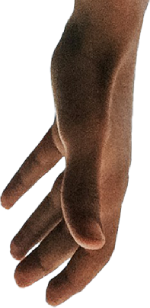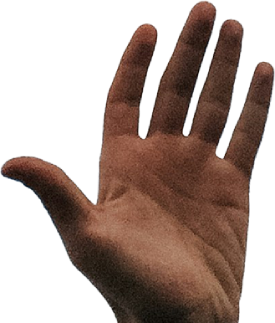Detox Timeline by Substance: What to Expect from Start to Finish
For individuals battling substance use disorders, the first critical step toward recovery is detoxification or detox. Understanding the detox timeline for various substances is essential for patients and families preparing for the journey ahead. Not all detox experiences are the same: timelines can vary widely depending on the substance, duration of use, and the individual’s health profile.
At Los Angeles detox clinics, professional medical detox programs offer safety, clinical oversight, and comfort especially when compared to risky at-home withdrawal attempts. Whether you or your loved one is facing alcohol, opioids, benzodiazepines, or stimulant addiction, knowing what to expect can ease uncertainty and improve outcomes.
What Is Medical Detox, and Why Is It Necessary?
Medical detox is a structured, medically supervised process that helps individuals safely withdraw from addictive substances. Its purpose is twofold:
- Manage withdrawal symptoms safely
- Prepare the patient for long-term treatment and recovery
Risks of At-Home Detox
Attempting detox at home may lead to:
- Seizures
- Dehydration
- Delirium tremens (especially in alcohol withdrawal)
- Psychological crises
- Increased relapse risk
In contrast, professional detox clinics in Los Angeles provide:
- 24/7 clinical monitoring
- Evidence-based medications (e.g., Suboxone, benzodiazepines)
- Licensed medical staff and dual-diagnosis care
- Integration with local inpatient and outpatient rehab options
Los Angeles boasts several state-accredited and licensed facilities, making it a trusted hub for professional detox support.
Long Does Detox Take for Common Substances?
Detox timelines vary by substance, as withdrawal affects each body differently. Below is a substance-specific breakdown.
Alcohol Detox Timeline in Los Angeles
How long does alcohol withdrawal last?
| Time Frame | Symptoms & Interventions |
|---|---|
| 6–12 hours | Anxiety, nausea, tremors, insomnia |
| 12–72 hours | Hallucinations, seizures |
| Days 3–7 | Risk of delirium tremens (DTs), rapid heart rate, high fever |
Common Medications: Benzodiazepines, IV fluids, anticonvulsants
Monitoring Required: ICU-level care in severe cases
Opioid Detox Timeline (Heroin, Fentanyl)
What to expect during heroin or fentanyl withdrawal?
| Phase | Timeline | Symptoms |
|---|---|---|
| Acute Phase | Days 1–3 | Muscle pain, insomnia, diarrhea, anxiety |
| Post-Acute Phase | Weeks–Months | Cravings, mood swings, fatigue, insomnia |
Medication-Assisted Treatment (MAT) options include:
- Suboxone (buprenorphine + naloxone)
- Methadone
- Clonidine (for symptom relief)
MAT is widely available in Los Angeles detox centers and often included in comprehensive recovery plans.
Benzodiazepine Detox Timeline
Why is benzo detox dangerous without supervision?
Benzodiazepines (e.g., Xanax, Ativan) require a gradual taper to avoid severe withdrawal symptoms such as seizures, psychosis, or rebound anxiety.
| Timeline | Notes |
|---|---|
| Weeks–Months | Individual taper plans, may last several months |
| Risks | Grand mal seizures, delirium |
Detox from benzodiazepines must be medically supervised. Licensed detox clinics in LA offer slow tapering protocols tailored to each patient.
Stimulant Detox Timeline (Cocaine, Methamphetamine)
Do stimulants have physical withdrawal symptoms?
Stimulant withdrawal is more psychological than physical, but still intense.
| Phase | Timeline | Symptoms |
|---|---|---|
| Crash | Days 1–4 | Fatigue, hypersomnia, agitation |
| Recovery | Weeks | Depression, cravings, anhedonia |
No FDA-approved medications exist yet for stimulant detox, but supportive care and behavioral therapy are essential.
Other Substances: Marijuana, Prescription Drugs
- Marijuana: Anxiety, insomnia, mood swings (3–14 days)
- Prescription Meds (Adderall, Ambien): Vary widely; may mimic stimulant or sedative withdrawal
What Factors Influence the Detox Timeline?
Several factors determine how long detox will take:
| Factor | Impact Example |
|---|---|
| Type of Substance | Alcohol has shorter detox; benzos take longer |
| Duration & Frequency of Use | Chronic use extends withdrawal timeline |
| Mental Health Conditions | May require dual-diagnosis treatment |
| Polydrug Use | Complicates symptom management |
| Metabolism & Age | Slower detox in older adults or poor health |
Los Angeles detox clinics conduct full assessments to tailor detox plans accordingly. Many offer dual-diagnosis programs, especially helpful for patients with anxiety, depression, or trauma-related disorders.
What Are the Stages of the Detox Process?
Stage 1: Intake
- Comprehensive medical and psychological evaluation
- Drug screening and history
- Insurance verification and coverage review
Stage 2: Stabilization
- Medication management
- Nutritional support and hydration
- 24/7 monitoring
Stage 3: Transition
- Planning next steps: inpatient or outpatient rehab
- Family support coordination
- Relapse prevention strategy
What Happens After Detox?
Detox is only the first phase of recovery. Ongoing treatment is necessary to address the root causes of addiction.
Options After Detox in Los Angeles:
- Inpatient rehab: Structured environment, 24/7 support
- Outpatient rehab: Flexible therapy for work/life balance
- Sober living homes: Transitional housing with peer support
- Therapy and Counseling: CBT, trauma-informed care
- 12-Step or SMART Recovery groups: Community-based support
How to Choose a Detox Clinic in Los Angeles
Key Criteria to Look For:
- Licensed by California DHCS or accredited by The Joint Commission
- Medical staff on-site 24/7
- Offers MAT (Suboxone, Methadone)
- Dual-diagnosis capabilities
- Aftercare planning services
Questions to Ask When Comparing Clinics:
- Do you accept my insurance?
- Are detox and rehab under the same roof?
- What amenities do you offer (e.g., private rooms, yoga, art therapy)?
- Is visitation allowed?
Local Advantage: Many LA clinics offer serene, beachside or canyon locations, holistic healing practices (like acupuncture or breathwork), and bilingual staff.
What Should Families Know About Supporting a Loved One in Detox?
Family support is a cornerstone of successful detox and recovery.
Tips for Family Members:
- Communicate with compassion: Encourage treatment, avoid blame
- Set boundaries: Don’t enable or allow manipulation
- Stay informed: Learn about addiction as a disease
Many Los Angeles detox programs include family therapy to help rebuild trust and develop healthy communication strategies.
FAQs: Detox Timelines and Safety
Can detox be done at home?
Technically yes, but it is strongly discouraged. Risks like seizures, dehydration, and psychological distress are best handled under medical supervision.
How much does detox cost in Los Angeles?
Prices vary based on facility type, insurance, and services offered. Out-of-pocket costs can range from $1,500–$10,000+, but many clinics accept private insurance or Medi-Cal.
What if my loved one refuses detox?
Intervention services and motivational interviewing techniques can help. Consult a licensed addiction professional or interventionist in Los Angeles for guidance.
5 Signs You Need Medical Detox
- You’ve experienced withdrawal symptoms before
- You use substances daily or binge heavily
- You’ve tried to quit but relapsed
- You’re mixing multiple substances
- You’re concerned for your safety during withdrawal
Conclusion
Medical detox is a vital first step in recovery from substance use. By understanding the substance-specific detox timelines, families and patients in Los Angeles can make informed choices and prepare emotionally and logistically for the process.
Professional detox programs not only ensure safety and medical support but also set the stage for lasting recovery. If you or a loved one is seeking licensed detox centers in Los Angeles, start by verifying the facility’s accreditation and evaluating its approach to whole-person care.

